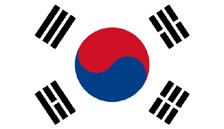Car dealers in Britain will certainly see the affect of the European Union’s (EU) recent signature of a free trade deal with South Korea. Once ratification procedures have been cleared, the EU’s import duties on cars made in South Korea (mostly 10%) will disappear within 60 days.
The EU car manufacturing sector thinks this is important: it has secured protections allowing the reimposition of these duties should there be a glut of exports from South Korea damaging their health. So it is clear this is no paperweight deal. On the face of it, this deal gives Korean car dealers in Britain a chance to reduce prices and grow their sales sustainably.
The big question of course is whether this will actually happen.
Steve Kitson, of Kia Motors UK, told AM his company was “not planning a major change to our product range and current market positioning and offerings” as a result of the trade deal.
However, there could be changes in the pipeline. “We will have to wait and see what happens to our freight on board pricing from Korea,” he said, which would depend on decisions at the European office in Frankfurt and head office in Seoul.
Because of the deal, Kia has several options. It could cut prices by 10% or 5%, freeze prices or reduce them a little and throw in more specifications, or stop supporting the European market so much and take a higher profit margin. These choices have yet to be made.
Around 40% of Kia’s cars sold in Britain will not be affected because they are made in the EU either at its Slovakia plant or under licence in the Czech Republic. These will continue to attract no duty entering the UK. This affects the Cee’d, Venga and Sportage models.
However, around 60% of Kia vehicles sold in Britain are still shipped from South Korea. These include Picanto, Kia Soul, Rio, Sorento, Carens and Sedona which accounted for 25,000 units sold in Britain last year. It could exceed 30,000 this year – a lot of cars.
If Kia cut prices of these by 5% “that would be a significant factor in helping retail sales”, less so in the fleet market, said Kitson.
Similarly, adding extra visible equipment could also give fizz to retail sales.
Even so, currency markets may cause problems. Sterling’s strength against the Korean
won in October was 12% lower than its rate in October 2009, said Kitson. The won has also been strengthening against the US dollar and the euro.
This means that whatever currency is used to buy a Kia South Korea-made car when importing it into the EU, they will become more expensive to European consumers, especially the UK, if the pound weakens against the dollar and the euro. A stronger won could wipe out pricing gains created by the free trade deal.

Hyundai Motor UK is also enthusiastic – although it will be less affected by the agreement than Kia. Spokesman Laura King said her company was “very excited with the comprehensive free trade agreement reached by the EU and South Korea,” adding: “The elimination of the import duties on nearly all products will certainly serve as a stimulant for trade between the two regions and will help EU companies export to South Korea.”
However, because Hyundai has its factory in the Czech Republic, the UK operation now imports many more cars from mainland Europe than from South Korea. So far in 2010 the proportion of its cars imported from its South Korea plants has represented only 7% of UK sales.
As a result, he said: “The reduction of import duties on automobiles is phased over a five-year period commencing with 3% in 2011 and the UK operation does not see that this will have a significant impact on the volume of cars being imported.”
Over in South Korea itself, a spokesman from the international co-operation department of the Korean Automobile Manufacturers Association (KAMA) predicted that the price of South Korean-made cars would fall when exported to Europe.
“We think it will be highly possible for Korean carmakers to lower prices in the next three to five years as the tariff will be removed. But we are not sure by what percentage, as it depends on each maker’s decision. Giving parts or accessories, which used to be paid for, for free might be used as a short-term promotion strategy by the local car dealers in Europe, but it will not last long,” he suggested.
Looking ahead, he predicted South Korean manufacturers, despite the trade agreement, would look to expand production and parts sourcing within the EU, with the expansion of existing plants a clear choice over building afresh. As for parts, he said British suppliers were excellent: “There are many qualified auto-parts manufacturers in the UK as well as a convenient transportation network which allows fast shipment to the whole European continent.”














sultan - 24/07/2013 08:46
Global Trading Company Ltd. We are a reliable importers Our main Purchase is all kinds of Used Cars And New Cars 1. Macedez benz C200 YR 200 2. BMW X5 YR 2000 And other Computer goods. We want to be good business partners. And supply us the above mentioned Unites. send us the the prices,We have our Order Please contact us at anytime. Sincerely Yours, mike Global Trading company ltd p.o.box 980 mabilizi complex Grd level shop 20 Kampala Rd. Uganda [East Africa] Tel 256 701 485592 Fax. 256-414-235763.